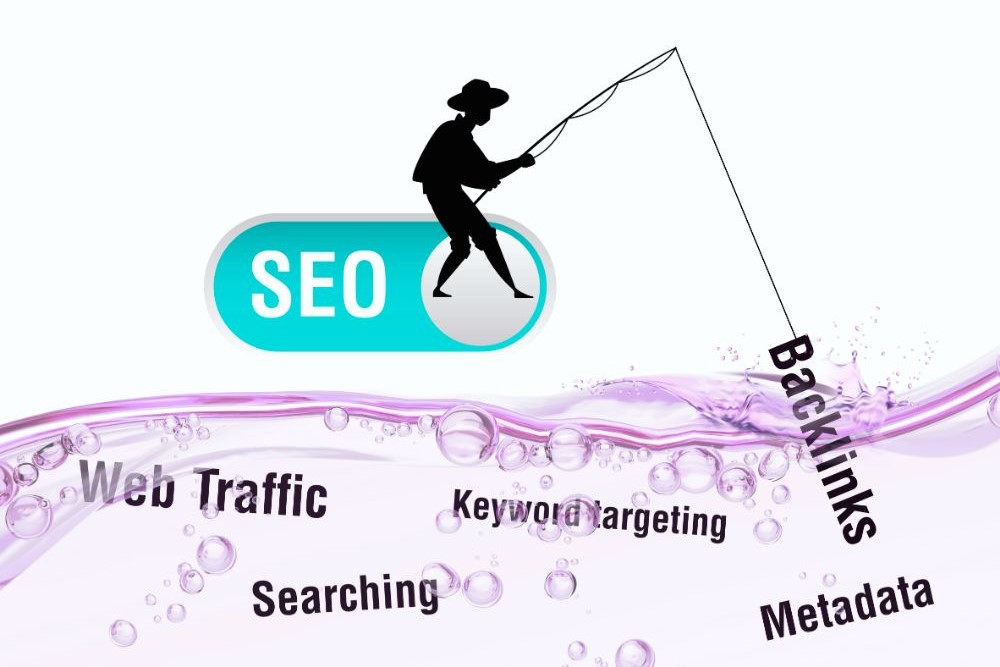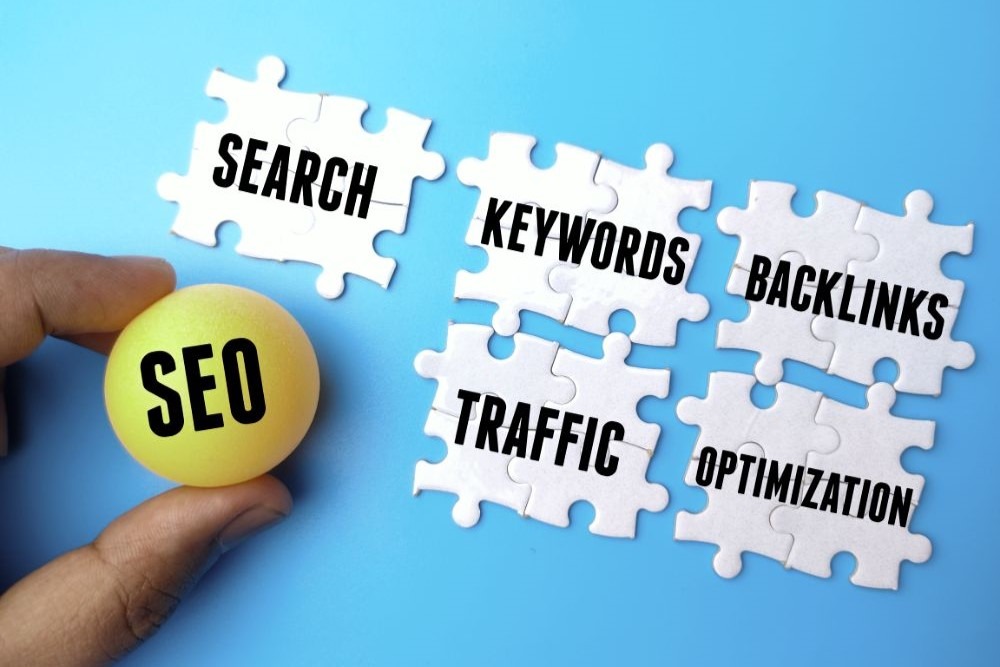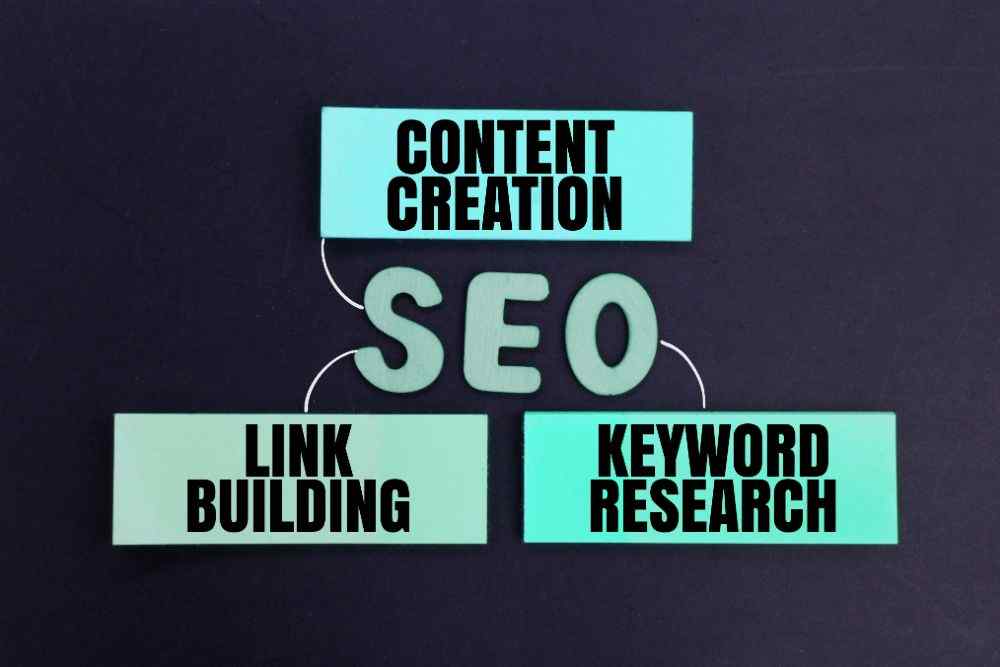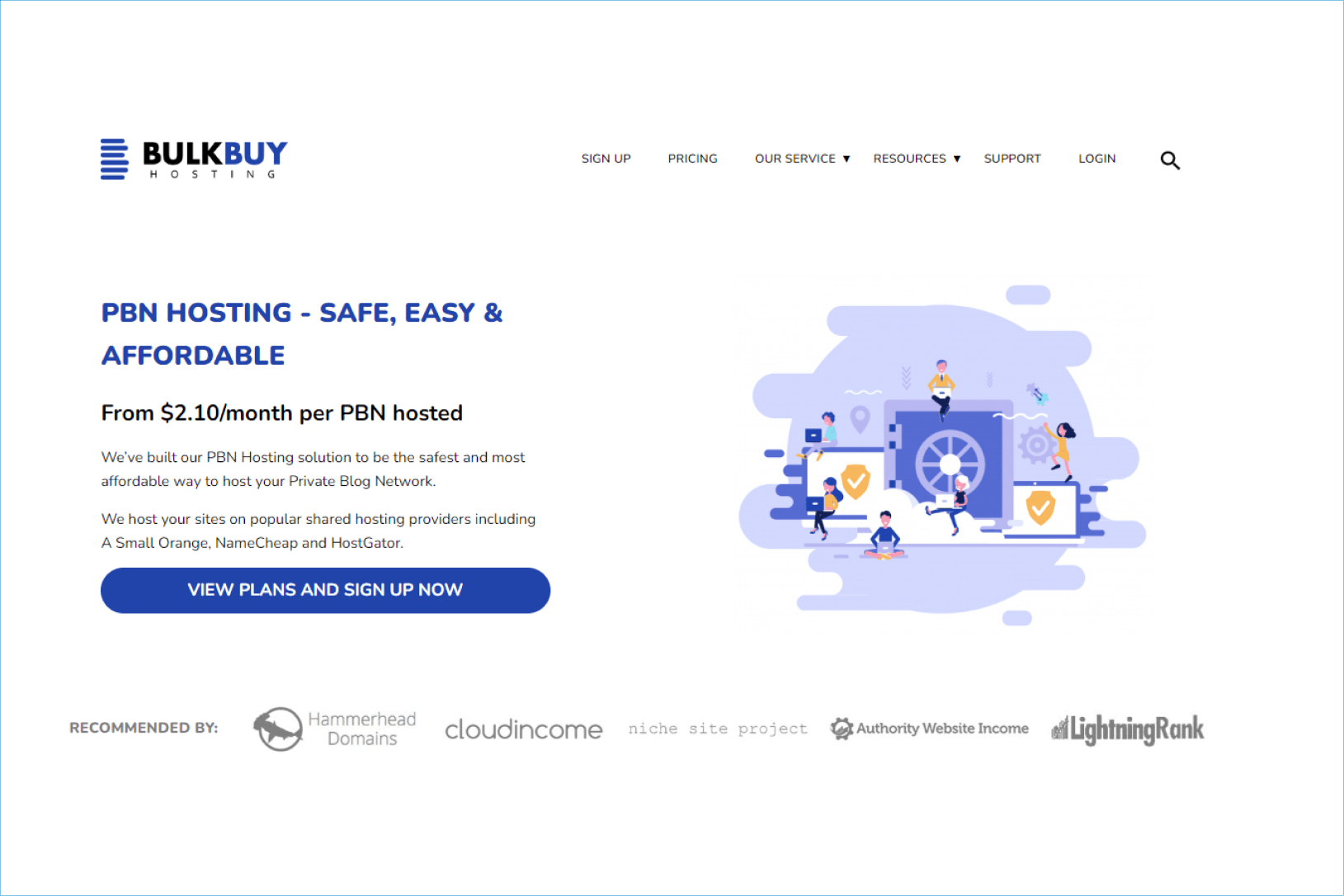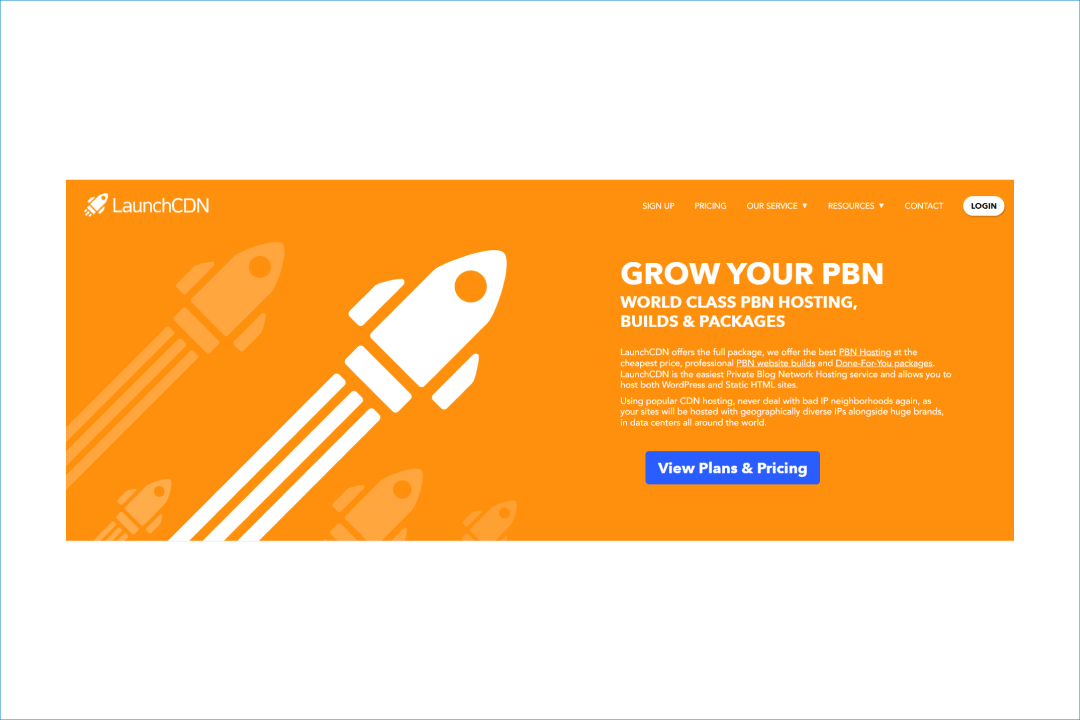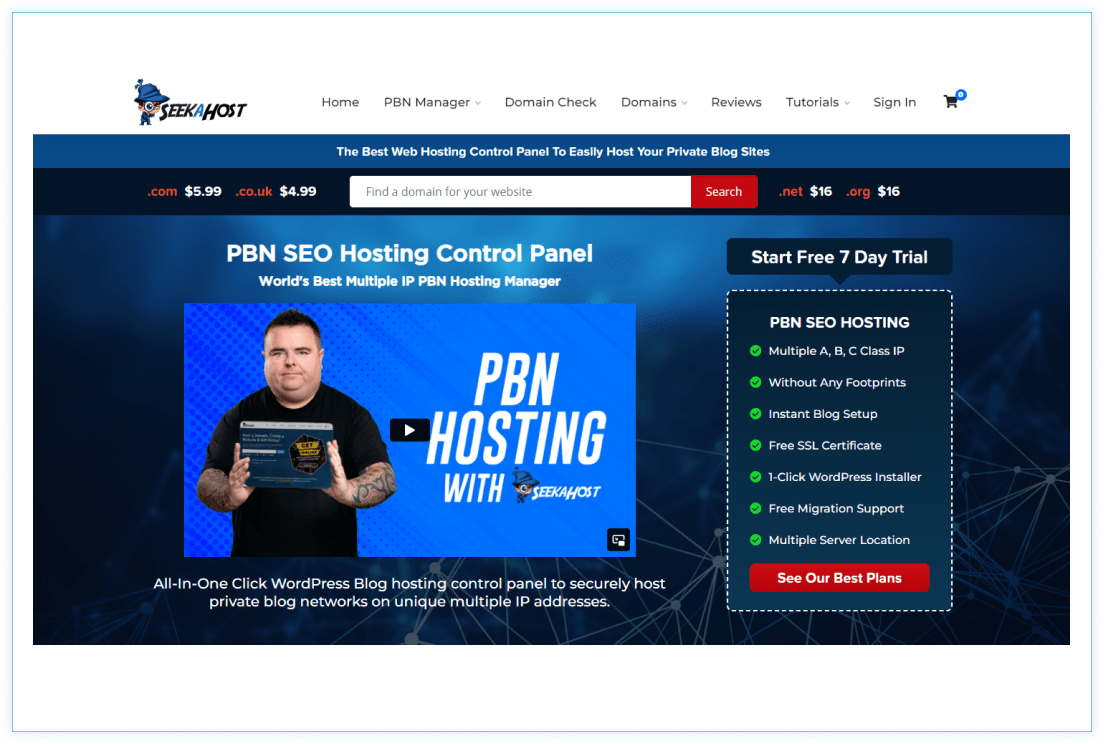
Affiliate marketing is an incredibly effective tool for generating income through promoting products and earning commissions on sales. However, to maximize your earnings, you need to attract traffic to your website, and that’s where Search Engine Optimization (SEO) comes in. In this comprehensive guide, we’ll walk you through the essential steps of doing SEO for affiliate marketing.
Key Takeaways
- Affiliate marketing is when businesses reward affiliates for driving traffic, leads, or sales based on performance.
- SEO is crucial for affiliate marketing because it improves the visibility and reach of your content, leading to higher organic traffic and potentially more conversions.
To Do SEO for Affiliate Marketing:
- Find low-competition keywords to target, focusing on long-tail phrases for specific, high-converting traffic.
- Produce valuable, engaging content that incorporates targeted keywords naturally and includes multimedia elements.
- Ensure meta tags, headers, URLs, and image alt text are optimized for search engines to improve visibility.
- Improve site speed, mobile-friendliness, and security to enhance user experience and search engine rankings.
- Acquire backlinks from reputable sources through guest posting, influencer outreach, and social media promotion to boost authority and rankings.
Understanding the Basics of SEO for Affiliate Marketing
What is Affiliate Marketing?
Affiliate marketing is a part of digital marketing where businesses reward affiliates (marketers) for driving traffic, leads, or sales to their products or services. It involves a partnership between a business (the merchant) and an affiliate, who promotes the merchant’s products or services on their platform, such as a blog, website, or social media account.
What is SEO?
Search Engine Optimization (SEO) involves a range of strategies aimed at boosting your visibility and ranking on search engine results pages (SERPs). By implementing SEO, you can enhance your chances of achieving higher rankings, which in turn can significantly increase organic traffic to your website. This organic traffic is especially important for affiliate marketers who rely on converting visitors into buyers to drive revenue.
Why is SEO Important for Affiliate Marketing?
SEO is crucial for affiliate marketing because it increases the visibility and reach of your content, leading to higher organic traffic and potentially more conversions. Here are the key reasons why SEO is important for affiliate marketing:
Increased Organic Traffic
- Higher Search Engine Rankings: SEO helps improve your website’s rankings on SERPs. When your site appears at the top of the search results for relevant keywords, it attracts more organic traffic. More traffic means more potential clicks on your affiliate links and, therefore, more opportunities for earning commissions.
- Long-Term Traffic: SEO efforts can lead to sustained traffic over time. Unlike paid advertising, where traffic stops once the ads are turned off, high-ranking pages can continue attracting visitors long after publication, providing a long-term source of traffic and revenue.
Targeted Audience
- Relevant Keywords: By optimizing for specific keywords related to the products you’re promoting, you attract a targeted audience actively searching for those products. This relevance increases the likelihood of conversions since visitors are more likely to be interested in purchasing the products you recommend.
- Intent-Based Traffic: SEO helps attract visitors with purchase intent. For instance, someone searching for “best DSLR cameras 2024” is likely looking to buy a camera soon. Targeting such intent-based keywords increases the chances of conversions from your affiliate links.
Cost-Effective Marketing
- Reduced Advertising Costs: SEO is a cost-effective strategy compared to paid advertising. While it requires time and effort to optimize your site and content, it doesn’t incur direct costs like PPC campaigns. This makes it an attractive option for affiliate marketers who want to minimize expenses while maximizing their reach.
- Higher ROI: Given that SEO can generate high-quality, targeted traffic without ongoing costs, it often results in a higher return on investment compared to other marketing strategies.
Builds Trust and Credibility
- Authority and Expertise: High-ranking content on search engines is often perceived as more authoritative and trustworthy. By providing valuable and well-optimized content, you prove yourself as an expert in your niche, which builds trust with your audience. Trust is crucial in affiliate marketing, as people are more likely to follow recommendations from reliable sources.
- Quality Content: SEO encourages the creation of high-quality content that meets users’ needs. Well-researched and informative content helps with rankings and enhances user experience, increasing the likelihood of return visits and conversions.
Enhanced User Experience
- Faster Load Times: SEO involves optimizing various technical aspects of your site, including load times. Having a website that loads quickly enhances the overall experience for users, potentially lowering the rate at which visitors leave the site without interacting and encouraging them to stay longer. By doing this, you can increase the chances of driving conversions. (read our article How User Experience Affects SEO)
- Mobile Optimization: With the increasing number of searches coming from mobile devices, it’s crucial to ensure that your website is mobile-friendly. A mobile-optimized site offers a smooth experience for mobile users, resulting in increased engagement and conversion rates.
Competitive Advantage
- Staying Ahead of Competitors: SEO helps you stay competitive in the crowded affiliate marketing space. By consistently optimizing your content and staying up-to-date with SEO best practices, you can outperform competitors who are not as focused on SEO.
- Local SEO Opportunities: Local SEO can benefit affiliates targeting local markets. By optimizing for local search terms, you can attract traffic from specific geographic regions, providing having a strong focus on local SEO can give you an advantage over competitors who may not be prioritizing it.
Step-by-Step Guide to SEO for Affiliate Marketing
Here’s a complete step-by-step guide on how to do SEO for affiliate marketing:
Keyword Research
Identify Your Niche
Start by defining your niche. Learn about the products or services you will be promoting and who your target audience is. This focus will guide your keyword research and content strategy.
Use Keyword Research Tools
Use tools like Ahrefs and SEMrush to find relevant keywords. Look for keywords with a high search volume and low competition rate. (learn how to do keyword research here: https://quirk.biz/how-to-do-keyword-research-for-seo/)
Long-Tail Keywords
Be sure to focus on long-tail keywords as they are more specific and less competitive, leading to greater success. These keywords often convert better because they indicate a more defined search intent. For example, instead of targeting “running shoes,” target “best running shoes for flat feet.”
Analyze Competitors
Specify your main competitors and analyze the keywords they are ranking for. Use tools like Ahrefs and SEMrush to gain insights into their top-performing keywords and content.
Content Creation
High-Quality Content
Crafting valuable, high-quality content is crucial to addressing the needs and interests of your audience. This encompasses various content types, including impactful blog posts, insightful product reviews, comprehensive comparison guides, and instructive how-to articles.
Content Optimization
Optimize your content by incorporating your target keywords naturally. Include your main keyword in the title, headers, meta descriptions, and naturally throughout the body of the text, without overusing it.
Multimedia
Incorporating images, videos, infographics, and other multimedia elements into your content can elevate the overall UX and make your content more visually appealing. Moreover, this multimedia approach not only boosts user engagement but also contributes to improving your content’s SEO.
Internal Linking
When creating content for your website, it’s beneficial to incorporate internal links that connect related articles, blog posts, or pages. By using internal linking, you can improve your site’s overall structure. This helps search engines to understand your website’s layout and the relationship between different pages. It also encourages visitors to explore more content, ultimately keeping them engaged for longer periods.
On-Page SEO
Meta Tags
Make sure that your meta titles and descriptions are fully optimized with your target keywords and compelling enough to drive clicks.
Header Tags
Use header tags (H1, H2, H3, etc.) to organize your content. Include keywords in these headers to improve SEO.
URL Structure
Keep URLs short, descriptive, and keyword-rich. Don’t use numbers or random strings of characters.
Alt Text
Using descriptive alt text for images is important for improving site accessibility and helping search engines understand the content. It shows that your website is fully optimized for all users and increases its visibility in search results.
Schema Markup
Schema markup is a type of code that you can add to your website to provide search engines with more information about your content. By incorporating schema markup and rich snippets, you can make your content more visually appealing and informative, which could result in higher click-through rates from users who see your enhanced listings in search engine results.
Technical SEO
Site Speed
Optimize your website’s loading speed. Use tools like Google PageSpeed Insights and GTmetrix to identify and fix issues. Compress images, use a content delivery network (CDN), and leverage browser caching.
Mobile-Friendliness
Ensure your site is mobile-friendly. Use responsive design and test your site on different devices to ensure a seamless user experience.
Secure Your Site
Use HTTPS to secure your site. Search engines prioritize secure websites, and users trust them more.
XML Sitemap
To improve the efficiency of search engine crawling and indexing, make an XML sitemap and submit it to search engines. This will help search engines understand your website’s structure and index its pages more effectively.
Robots.txt
Optimize your robots.txt file to ensure search engines can access the important parts of your site while blocking access to irrelevant sections.
Off-Page SEO
Quality Backlinks
Build high-quality backlinks from reputable sites. Focus on getting links from authoritative sites in your niche. Guest posting, broken link building, and outreach are effective strategies.
Social Signals
Promoting your content on social media platforms such as Facebook, Twitter, Instagram, and LinkedIn can significantly enhance its visibility and potentially attract more backlinks. When your content receives recognition and engagement on social media, it can indirectly impact your SEO performance through improved brand exposure, increased website traffic, and enhanced online authority.
Influencer Outreach
Connect with key figures in your industry to establish partnerships that can elevate your brand awareness and reputation. These influencers have the power to show your brand to a wider audience and increase your authority within your field.
Local SEO
Google My Business
If you target local customers, create and optimize a Google My Business profile. Ensure your NAP (Name, Address, Phone Number) information is consistent across all platforms.
Local Keywords
Use local keywords in your content and meta tags. For example, if you’re promoting a local gym, use keywords like “best gym in [city].”
Local Directories
List your site in local online directories. Ensure your business information is accurate and consistent.
Monitoring and Analytics
Google Analytics
Use Google Analytics to track your website traffic, user behavior, and conversion rates. Analyze the data to gain insights into which aspects are performing well and which require enhancements.
Google Search Console
Monitor your site’s performance in Google Search Console. Check for indexing issues, keyword performance, and other important metrics.
Regular Audits
Conduct regular SEO audits using tools like Ahrefs, SEMrush, and Moz. Identify and fix any issues to maintain and improve your site’s SEO health.
Conclusion
SEO for affiliate marketing is a comprehensive process that involves strategic planning, consistent effort, and ongoing optimization. Following these steps can improve your site’s visibility, attract more targeted traffic, and increase your chances of earning commissions through your affiliate links.
Remember, SEO is a long-term investment, and the results will accumulate over time with persistent effort and adaptation to new SEO trends and algorithm updates.


























